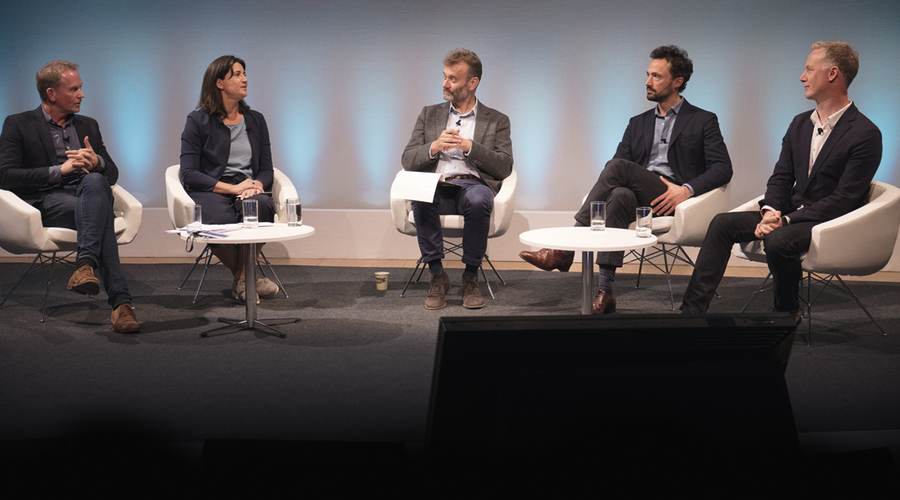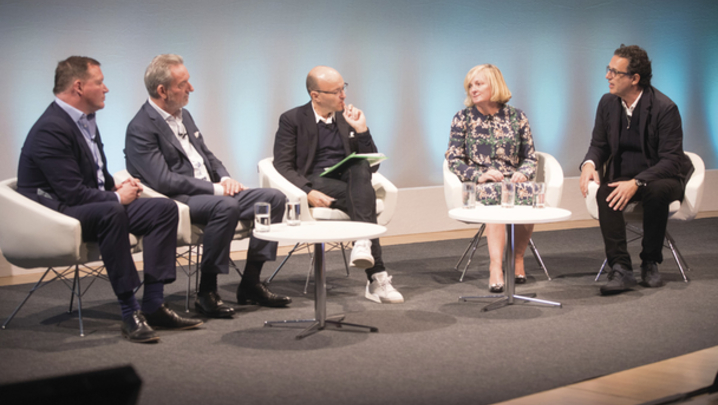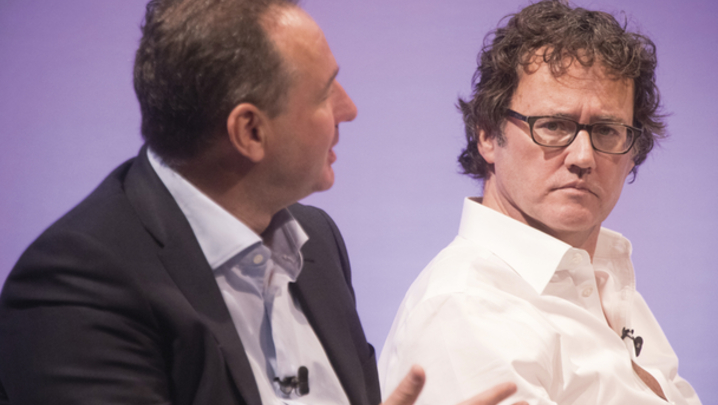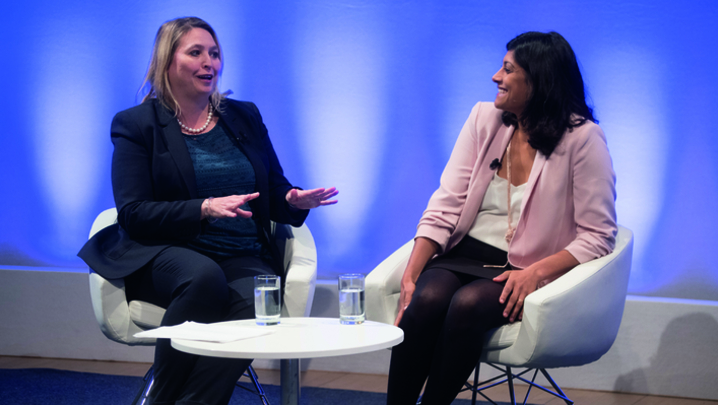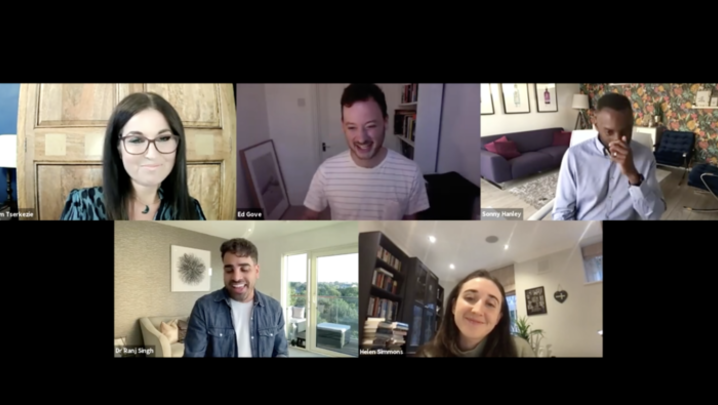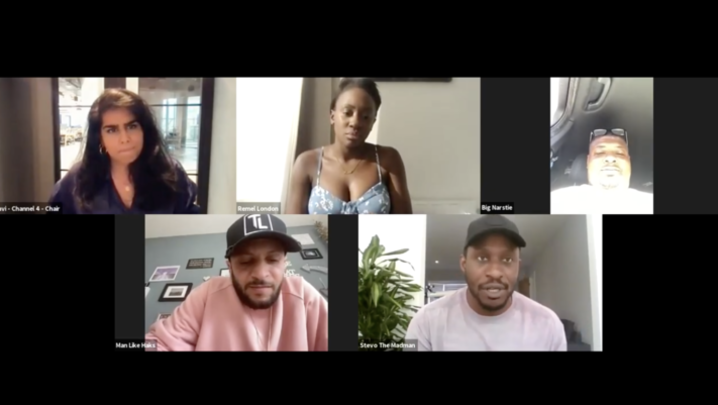Recent negative publicity does not seem to have dented the rise of online advertising. Matthew Bell judges the state of play
Online advertising has seen huge growth in recent years, putting fear into those broadcasters dependent on ad revenues for their living.
But all is not lost for broadcasting, which is developing new weapons to fight back against the massing digital threat. And digital advertising is showing itself a risky business, as concerns grow about brand safety in the often murky online world.
Earlier this year, a Times investigation, run by panellist Alexi Mostrous, found that some of the world’s biggest brands were, unwittingly, funding terrorist and hate groups.
Mostrous told the RTS Convention that he had discovered that ads were “turning up on Isis-supported videos, al-Shabaab-supported videos and hate videos on YouTube”.
“There’s no place on YouTube for terrorism or hate speech,” responded the company’s Ben McOwen Wilson. But the YouTube exec pointed out that more than 400 hours of content was uploaded to the platform every minute. Monitoring videos was a Herculean task.
“Historically, we have relied on flagging from users,” he explained, but, since March, Google has begun to harness more technology to identify and remove extremist videos.
The North American tech giant has also increased the number of non-governmental organisations it works with to deal with this problem. “We’ve expanded that group, specifically targeting groups [combating] extremist and terrorist content. They are able to flag multiple videos,” said McOwen Wilson.
Mostrous gave some credit to YouTube: “The number of ads now appearing on extremist videos has, in my own opinion, diminished heavily, but there is still a lot of extremist content on sites without ads.”
However, the technology being used to identify and remove ads from extremist videos, is also being used to suggest other extremist content to users, explained Mostrous. “On the Isis video that I looked at, it was a problem that it was there in the first place, but the big problem was that, on the right-hand side [of the page], eight or nine other Isis videos were being suggested to me,” he said.
“Advertisers care about brand safety,” argued Argos’s Nicki Brown. “The steps that [YouTube] has taken have helped us feel more confident, but we are still monitoring this carefully.”
“It’s almost impossible to guarantee brand safety because so much content is unregulated [and] user-generated,” argued ITV’s commercial director, Kelly Williams. “So I think brands that advertise on YouTube have to keep their eyes open.”
According to session chair Hugh Dennis, the World Federation of Advertisers has estimated that 30% of online ads are never seen by a human. The comedian had a little-known qualification for chairing the session – for seven years, post-university, he worked as a Unilever brand manager, with Lynx deodorant among his accounts.
Thirty percent of online ads are never seen by a human
“The truth is that there’s a lack of transparency across the media industry as a whole. Online is a new player in this and, probably, it is a little murkier than, perhaps, the other channels,” said Brown.
Mostrous argued that targeting online ads at individuals could work well for both the brands and the people receiving ads tailored to their needs.
“But we’ve also got to look at how that targeting works on the selection and hoovering up of thousands and thousands of data points on those particular individuals who are shown the ads,” he said. “How YouTube, Google and Facebook are amassing all that data is a very significant question.
“You can have a view about this either way, but you can’t simply say, let’s look at programmatic [automated ads placed by algorithms] through a filter of whether someone is enjoying that advert – you have to look at the wider social implications around it, too.”
Williams offered a strong defence of television as an advertising medium. He said that TV currently offered mass marketing, which was at one end of the advertising scale, with precise, targeted advertising at the other.
“Over the next five to 10 years, I suspect that TV will build an addressable capability to live alongside our ability to deliver mass audiences, and within a very brand-safe, regulated [environment],” he said.
In answer to a question from the floor, he said that commercial broadcasters, who “are building [their] own data [sets], maybe need to collaborate a bit more and actually bring all of that data together and create a television data platform.”
“Advertisers don’t want to create an individual relationship with TV channels, they want a relationship with TV.”
“There is an Armageddon possibility here,” suggested Dennis. “There are an increasing number of ad blockers. There’s also Netflix and other SVoD [companies]. What is the likelihood that all ad content disappears because no one can actually deliver it?”
“All of us who would like to see an ad-funded future for media and media content have to worry,” replied McOwen Wilson. “At YouTube, we are very focused on [advertising] because it is our bread and butter.”
The YouTube exec revealed that, in the US, his company had created a “subscription service that gives people a chance to remove ads. We are testing it [to discover] the price point at which customers would [pay for] that. So, we are making sure that we have an ad-free option.”
Online advertising was in a period of change – with advertisers and platforms constantly chopping and changing. “We know that non-skippable, 30-second or longer adverts on mobile phones are just not watched,” revealed McOwen Wilson. “So, as of the end of the year, there will no longer be [those] adverts on YouTube.”
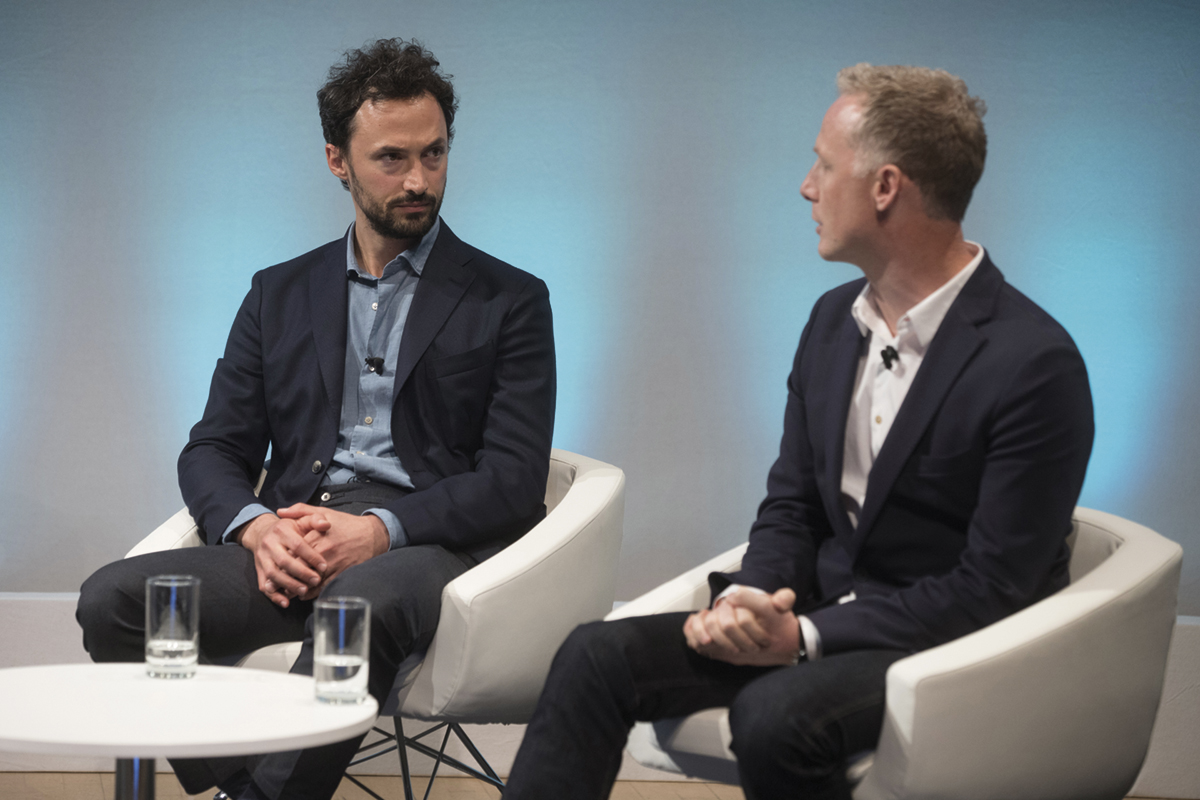
(Credit: Paul Hampartsoumian)
Brown felt that the RTS session had contained “a lot of negative language about [digital] Armageddon and [the] digital versus TV [battle]”.
The Argos ad controller, however, was more positive in her outlook: “There’s a real power [in] these two channels to build each other. At Argos, 10 years ago, I would make an ad and I would have to use TV to get people to get off their bums and go into an Argos [store]. Now, they don’t have to get off their bums [to buy] – they can do it there and then [online], and that’s the power of TV and digital [working together].”
Brown argued that there was “a massive opportunity for TV”. Addressable TV advertising, such as Sky AdSmart, which allows different ads to be served to different households watching the same programme, is offering an effective way for TV to compete with online advertising.
“We can move our advertising to those places where it gets a better return – on TV,” she said. “I think that TV has to embrace these opportunities, and look for more of them.”
‘Session Ten: What is the future for digital advertising?’ featured Nicki Brown, Argos advertising controller; Ben McOwen Wilson, director of partnerships, YouTube EMEA; Alexi Mostrous, head of investigations, the Times; and Kelly Williams, commercial director, ITV. The session was chaired by actor and comedian Hugh Dennis, and produced by Simon Pitts.
The battle between TV and digital
Digital video advertising has experienced explosive growth in the UK, increasing its spend by 75% over the past five years, revealed Boston Consulting Group’s Jacob Rosenzweig in his presentation at the start of this session.
Television, though, is still the dominant medium for advertising: while the UK spend on digital video was more than £900m in 2016, it was just a fraction of TV’s £5.3bn.
‘If digital keeps growing, it can only come from one place – and that’s TV,’ said Rosenzweig. ‘Our analysis shows that, while digital video gets just 8% of viewing time, it’s getting 15% of ad share. Advertisers, potentially, value digital more than TV. One advertiser told us for this study that “no one’s getting fired for spending more money on digital”.’
But is it worth it? Research on advertising effectiveness reveals that digital advertising ‘performs well, in particular, when it comes to data targeting’, but TV is ‘clearly ahead in most categories’ – data reach, engagement, context and long-term return on investment.
Digital advertising faces a number of challenges: for example, studies have shown that many ads are seen only by robots, not people.
Does this matter? Perhaps not, said Rosenzweig: ‘We spoke to a lot of advertisers and, yes, some of them told us that they’ve started to shift spend back to TV. But the vast majority said that this is just digital in its [early] years and, over the next couple of years, it will sort these issues out.
‘One thing is clear: TV and digital are heading towards each other. Digital players are announcing huge budgets for original content, including sport, which attracts huge audiences.’
To prosper, argued Rosenzweig, TV companies will have to make ‘big changes’. First, they must defend rights to premium and major live events to maintain their reach advantage over digital advertising.
Second, they must continue to invest in digital services, to compete with the on-demand platforms, and in data, to offer targeted advertising opportunities.
Most importantly, perhaps, said Rosenzweig, TV had to ‘prove its worth’ to the big advertisers.
Jacob Rosenzweig is MD, London, and a partner in Boston Consulting Group.
Expert vox pops set the scene
Before the Cambridge Convention, the RTS recorded a number of vox pops with leading lights in the advertising industry.
On brand safety, Bob Hoffman, author of the Ad Contrarian blog, said: ‘I really don’t think that brands and agencies care that much about this issue, despite all the posturing and play acting.’
Nicola Mendelsohn, VP EMEA for Facebook, insisted: ‘There is absolutely no place on Facebook for hate speech or content that promotes violence or terrorism.… We take our responsibility to maintain a brand-safe environment very seriously.’
Hoffman had advice for broadcasters on how to fight back: ‘If I were a broadcaster, I would have slots all over the TV, and on billboards all over the city, telling people how to download ad-blockers, because the public hates online advertising.’
David Wheldon, chief marketing officer at RBS, said that there was growing pressure to make video-on-demand work.… [It] features in every media schedule… without, necessarily, having any real metrics about efficacy.’
Mendelsohn said: ‘Because people can watch virtually anything at any time, they will only watch adverts that grab their attention, reward their time and are immediately relevant.
‘So, platforms such as Facebook have to help advertisers to figure out a way to cut through the noise.’
Which platform won the ad war would depend on ‘who delivers the best content… because the delivery systems are becoming completely irrelevant’, said Hoffman.
‘We expect the opportunity to continue for every one – that is because we’re all working towards the same ambition: to connect with people and to make them feel something. We all want to take them on a journey, and the best way to do that is to do it together,’ said Mendelsohn.
Wheldon said it was not clear yet who was going to be the winner, ‘but I think both sides in this particular game have a lot to learn from each other’.

